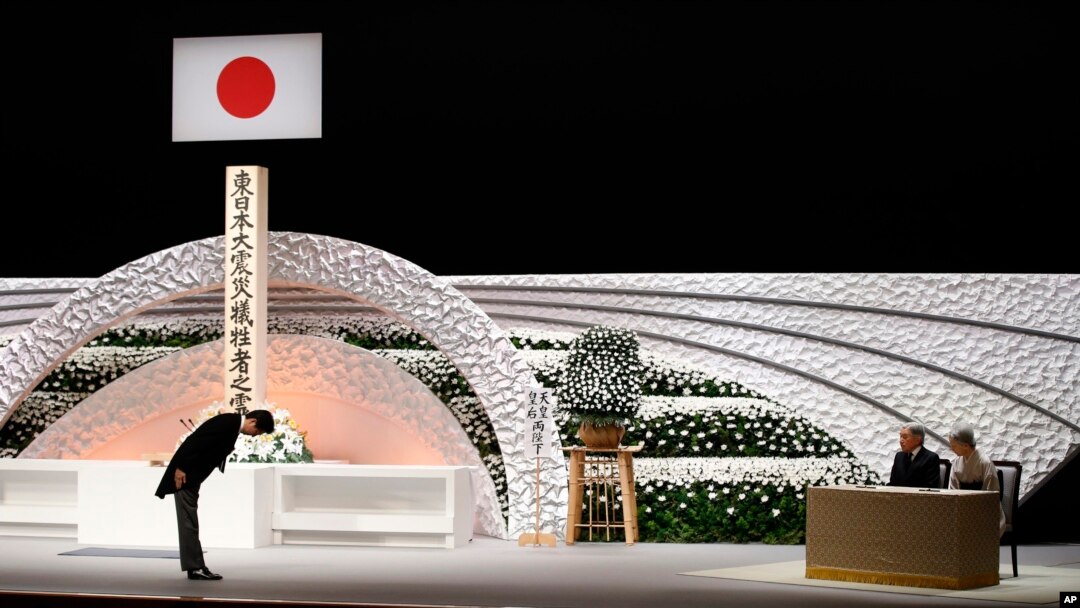In Japan thousands of people are still homeless and all of the nation’s nuclear reactors are still offline, four years after a magnitude 9.0 earthquake and tsunami caused the world's worst nuclear disaster since Chernobyl. Japanese Prime Minister Shinzo Abe has promised a five-year reconstruction plan for the areas still devastated by the disaster, but he remains a nuclear energy advocate despite strong public opposition.
More than 120,000 residents who lived within 20 kilometers of Japan’s Daiichi Nuclear Power Plant in Fukushima were evacuated in March of 2011 after the damaged nuclear plant started leaking radiation.
These nuclear refugees still cannot return home because of high radiation levels, and they still worry about suffering from long-term health implications like cancer due to the radiation exposure.
Professor Jeff Kingston, the director of Asian Studies at Temple University Japan, said they have come to symbolize the danger of nuclear power.
“These people all understand very well about the myth of safety that the government and utilities have propagated over preceding decades,” said Kingston.
Prime Minister Abe vowed this week to come up with a new-five year plan to rebuild the Pacific coastal region that was ravaged by the tsunami. The government has reportedly already spent $50 billion in the hardest hit areas.
Japan has allocated more than $15 billion for a project to lower radiation in towns near the plant where radioactive trash is being kept in 88,000 temporary storage facilities.
Tokyo also plans to build a more permanent nuclear storage facility near the plant, despite opposition from some residents.
After the Fukushima disaster, all of Japan’s 48 nuclear reactors were shut down. They remain closed because of safety concerns and because opinion polls indicate more than 60 percent of the public now oppose nuclear energy.
Yet Abe, who recently won re-election by a wide margin, remains a nuclear power supporter. Professor Kingston said the prime minister’s unpopular stand was somewhat calculated in that it garnered him the support of business leaders with vested interests in the nuclear industry.
“Some people will suffer a great deal if the nuclear power plants are not restarted. And those people are extremely influential in the corridors of power, and Prime Minister Abe is their man,” said Kingston.
Since 2012 solar energy production has increased to the point that it now produces the equivalent of 11 nuclear reactors. But the country now relies on imports of fossil fuels for 90 percent of its electricity production. Oil and gas until recently were significantly more expensive than nuclear power.
Tomoko Murakami, a nuclear energy analyst with the Institute of Energy Economics Japan, said the nation’s reliance on fossil fuels is a grave energy security concern, given the wide-ranging price fluctuations of these fuels and concerns over stability in many oil-producing countries.
“Too much import of natural gas would be quite high risk for, quite a high risk exposure for Japanese utilities,” said Murakami.
She said despite the risks, nuclear energy gave Japan a sense of energy security. But for a majority of Japanese, in the wake of the Fukushima disaster, the costs and risks of nuclear power appear to outweigh the security of energy independence.


